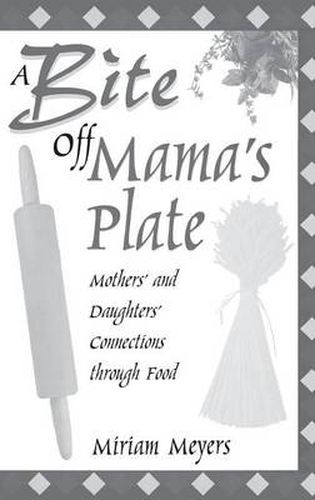Readings Newsletter
Become a Readings Member to make your shopping experience even easier.
Sign in or sign up for free!
You’re not far away from qualifying for FREE standard shipping within Australia
You’ve qualified for FREE standard shipping within Australia
The cart is loading…






In the last four decades of the 20th century women worked to escape the social messages of the 1950s regarding proper homemaking. During the 50s, despite an explosion of household appliances and gadgets, women spent increasing amounts of time in housekeeping. The idealization of perfectly clean homes and perfectly cooked and arranged food constituted oppression for most women, especially as the demands of working outside the home were added to work inside the home. Despite efforts to broaden the choices available to women, the assignment of food-related tasks - food procurement, preparation, and presentation - remains overwhelmingly in the hands of women. Meyers combines original research encompassing focus groups, interviews, and a national survey, as well as a personal memoir and a wide range of written sources to illuminate the ways mothers use this role to communicate with their daughters. The kitchen is revealed to be a place where women work, to be sure, but where they also gather to share confidences, memories, and laughter.
$9.00 standard shipping within Australia
FREE standard shipping within Australia for orders over $100.00
Express & International shipping calculated at checkout
In the last four decades of the 20th century women worked to escape the social messages of the 1950s regarding proper homemaking. During the 50s, despite an explosion of household appliances and gadgets, women spent increasing amounts of time in housekeeping. The idealization of perfectly clean homes and perfectly cooked and arranged food constituted oppression for most women, especially as the demands of working outside the home were added to work inside the home. Despite efforts to broaden the choices available to women, the assignment of food-related tasks - food procurement, preparation, and presentation - remains overwhelmingly in the hands of women. Meyers combines original research encompassing focus groups, interviews, and a national survey, as well as a personal memoir and a wide range of written sources to illuminate the ways mothers use this role to communicate with their daughters. The kitchen is revealed to be a place where women work, to be sure, but where they also gather to share confidences, memories, and laughter.